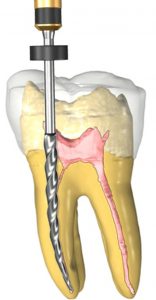Debatable topics
Ready to leave?
Oops ! Condition name you have entered is invalid.
You are now leaving Aposbook.com and going to an external site managed by another organization.
Please confirm your email address and try to login again.
This account has been deleted. do you want to restore it?

Validate your email
A verification link will be sent to within the next 2 minutes. Please click it to validate your e mail.
*If you didn't get the link, please check your spam folder
Welcome to Aposbook,
As a registered user, you can benefit from the various free tools and services that we provide.
All you need to do is log in to start discussing with others, interacting, asking questions, and sharing your point of view about the various topics.
You can also write reviews and testimonials about any natural solution you have tried and share your experience. Your feedback can be very helpful.
If you are a health expert, you can add information about any topic or suggest text edit. You can also publish content, including articles and videos, about any topic from the related library section.
Together we can help.
The Aposbook Team
Forgot Password?
A validation link will be sent to you by email. Please confirm your address to log in
*If you didn't get the link, please check your spam folder
Please log in to use this feature
Your account has been suspended because you have violated our code of conduct. If you think this was a mistake, you can contact us by email at: support@aposbook.com "Contact us" form.
Success! Thank you for your feedback. Your contribution can make a difference. Together we can help each other.



A root canal is a procedure designed to treat an infected or damaged tooth. During this treatment, a dentist removes the infected or dead nerve at the root of the tooth.
The dentist also removes the pulp, the soft center of the tooth, which contains the tooth’s living tissue. After removing the decayed or damaged tissue, the dentist cleans the tooth’s root canals, and then fills and seals the tooth to prevent further infection.
Root canal treatments became popular in the 1890s when people underwent dental procedures to repair and save their teeth. However, in the 1920s, a dentist named Dr. Weston Price discovered the harmful effects of these treatments on people’s health. His experiments revealed that bacteria grow in the root canal of the treated teeth and cause several diseases.
Nowadays, most dentists believe root canals are safe and effective treatments that can save teeth. However, many holistic or natural dentists think they are harmful to overall health and might lead to chronic illnesses like arthritis, cancer, heart disease, and autoimmune diseases. They ask people to consider other safer and healthier alternatives to treat damaged teeth.
What Do Different Health Experts Think of Root Canal Treatment?
Opinion 1: Root Canal Procedures are Safe
Dentists argue that root canal procedures are safe and do not cause any chronic disease. According to the American Association of Endodontists (AAE), dentists perform over 15 million root canal treatments in the United States every year.
They maintain that root canal procedures are safer because dentists use more advanced technologies to sterilize, fill, and seal the teeth than they did half a century ago.
Root canal treatments may also be the only way to save damaged or infected teeth without going through the painful and costly process of extracting the tooth.
When addressing concerns about root canal safety, dentists acknowledge that they cannot completely sterilize a tooth during a root canal procedure. However, they argue that the immune system can effectively fight off any bacteria that may grow in the tooth, preventing infection and disease.
Furthermore, they emphasize that there is little evidence to show that root canals are harmful to human health. Some holistic dentists cite Dr. Weston Price’s research on root canal-treated teeth to prove that root canal procedures cause several diseases.
However, after researchers conducted more experiments in the 1930s, they proved Dr. Price’s findings to be false. They concluded that Dr. Weston Price’s research on root canals was unreliable because his methods were faulty.
Traditional dentists also argue that Dr. Price’s studies were “poorly controlled” because he didn’t control and limit the number of bacteria he implanted in each rabbit. Also, scientists cannot replicate his experiments to prove the validity of his results.
Recent research also suggests that root canals don’t cause disease. The 2019 study, “Comparative Longitudinal Study on the Impact Root Canal Treatment and Other Dental Services Have on Oral Health-related Quality of Life Using Self-reported Health Measures (Oral Health Impact Profile-14 and Global Health Measures),” showed that root canals are as safe as other dental procedures.
Two years after the root canal treatment, the participants reported having a good quality of life. Their evaluation was similar to people who have had other dental procedures done.
Opinion 2: Root Canal Procedures Cause Illness and Diseases
Some functional medicine doctors and holistic dentists think that root canals may cause diseases like cancer, heart disease, and autoimmune diseases in the future.
They base this on Dr. Price’s experiments where he implanted a treated root canal tooth under different rabbits’ skins. The first rabbit quickly developed arthritis, the same disease his root canal patient had. Other rabbits also died because of infection.
Several holistic dentists support Dr. Price’s “focal infection theory.” It states that the bacteria remaining in the root canal may form toxins that enter the bloodstream and spread to other organs in the body, causing inflammation and diseases.
Dr. Rouzita Rashtian D.D.S, a biological dentist and surgeon, points out that dentists cannot guarantee the removal of all the dead tissue during a root canal treatment.
As a result, anaerobic bacteria, which thrive in the absence of oxygen, may grow inside the root canal and produce toxins. Both the bacteria and the toxins can leak outside the tooth and into the circulatory system, becoming “systemic” and causing “health damage.”
One 2016 review, “Oral Pathogens: A Common Cause of Chronic Disease,” indicates that bacteria that remain in the mouth after any dental procedure may cause disease. It calls for cooperation between dentists and cardiologists because the bacteria found in the teeth of root canal patients are the direct cause of heart attacks today.
Therefore, some experts urge people to consider the health risks of root canals before undergoing the treatment. They ask people to look for safer alternatives to root canals to avoid the risk of developing heart disease, cancer, or any other inflammatory disease.
Do You Think Root Canal Treatment is Safe or Harmful?
Share your thoughts on this topic in the forum below.
Vote “YES” if you think root canal procedures is safe and beneficial. "NO" if you think it causes illnesses and lead to the development of diseases like cancer, heart disease, and autoimmune diseases.
Upvote
- (1)
Downvote
- (4)
Views in favor of Root Canal
Views against Root Canal














James Tailor
So glad I only had one to remove. If its a front tooth or low impact tooth, you may be ok with it but as a molar I can tell you the massive infection after 5 years tho not painful was jeopardizing my health in other areas. The removal involved cutting the tooth in pieces to get to the root. There was so much infection I had my jawbone shaved and need to have a bone graft afterwards. 3 hours total and then 7-10 days of severe agony, but so happy its gone now. Get it removed and do an implant or a denture.
Reply